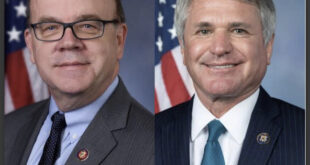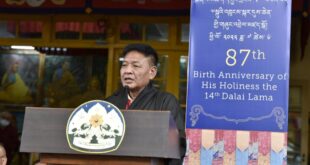Steven Lee Myers for The New York Times. Read the original article here.
In the past week officials in France, Britain and nearly two dozen African nations have rebuked actions or statements by the Chinese government.
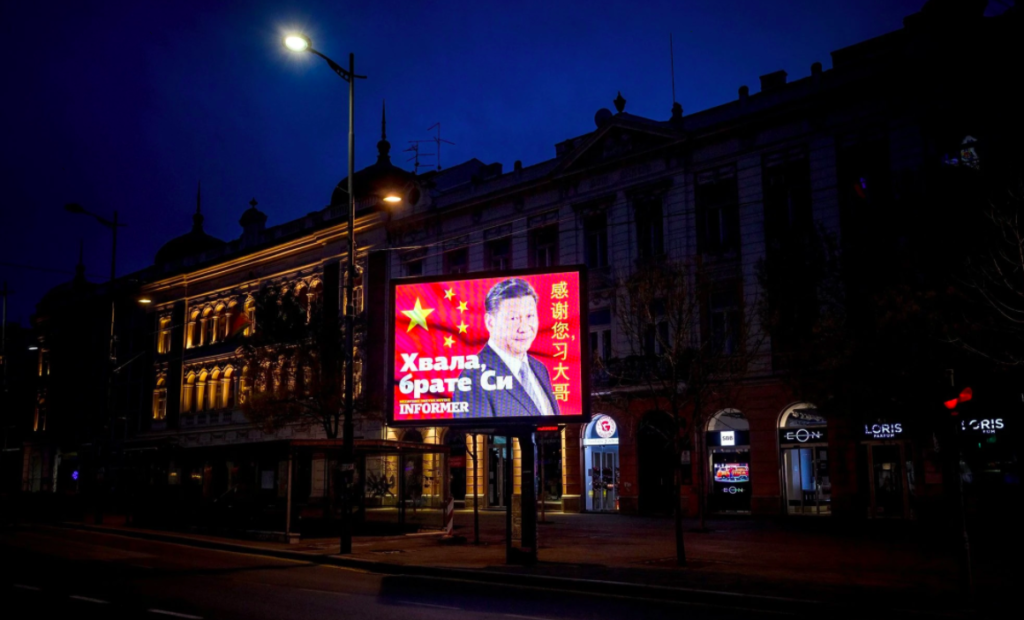
A billboard reading “Thank you, brother Xi” in Belgrade, Serbia, one of the foreign cities where China’s leader, Xi Jinping, sent medical teams to help fight the coronavirus.Credit…Andrej Isakovic/Agence France-Presse — Getty Images
China’s top leader, Xi Jinping, has used the coronavirus pandemic to shore up his political power at home, but the tools the Communist Party has exploited to do this are threatening China’s international standing.
China has demanded fealty and praise of Mr. Xi’s handling of the pandemic as a price for the country’s provision of medical supplies and expertise. It has accused Western countries of failing to protect their people, unleashing vitriol usually preserved for domestic audiences on the world, provoking anger.
In the past week officials in France, Britain and nearly two dozen African nations have rebuked actions or statements by the Chinese government. Mr. Xi’s government has now been accused of hypocrisy and hubris, for obfuscating the origins of the coronavirus and for portraying Western governments as ineffectual compared to China’s own response.
The state’s efforts to bolster Mr. Xi’s standing at home are undercutting any goodwill that China had generated by sending experts and medical supplies to countries on the newest front lines of the pandemic.
The lasting effect on Mr. Xi’s global ambitions could be profound. China’s relationship with the United States has already cratered, despite a rhetorical truce reached between Mr. Xi and President Trump. Now there is evidence the pandemic is forcing other countries to rethink relations.
Japan has pledged $2 billion to help companies move their production out of China because of concerns about the country’s reliability. President Emmanuel Macron of France questioned whether China’s response was a model for democracies to follow, disputing the narrative Mr. Xi’s acolytes have tried to spin. “Let’s not be so naïve as to say it’s been much better at handling this,” he said in an interview with The Financial Times.
China’s state media portray Mr. Xi as a steady, forceful and yet benevolent leader who has guided the country through a “people’s war” against the pandemic. The increasingly combative, nationalist tone of his diplomats, though, has stirred hostility.
China’s embassy in France posted a statement on its website accusing Western governments of failing to protect their most vulnerable, letting the residents of nursing homes die abandoned.
“How they operate domestically spills over into how they operate internationally,” said Susan L. Shirk, the chairwoman of the 21st Century China Center at the University of California, San Diego.
That means brooking no dissent, controlling the flow of information, emphasizing the central role of the Communist Party leadership and rarely, if ever, acknowledging mistakes.
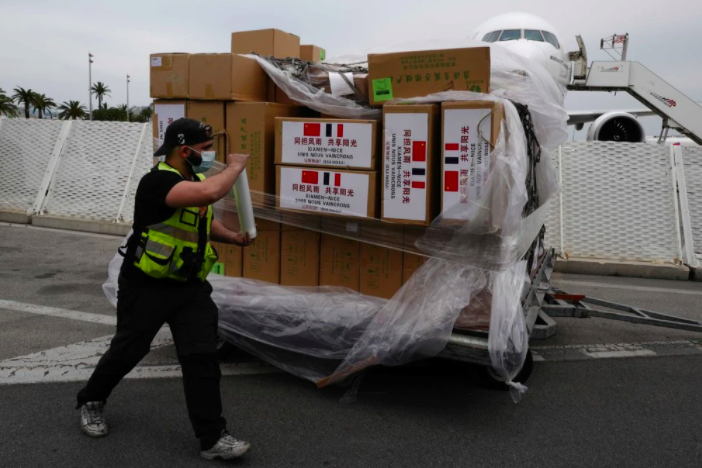
Medical supplies from China arriving Monday in Nice, in southern France. The French president has pushed back against China’s efforts to paint itself as a model for its handling of the coronavirus outbreak.Credit…Valery Hache/Agence France-Presse — Getty Images
Mr. Xi, in his many calls with counterparts around the world, has repeated the same points. The coronavirus pandemic knows no borders. The world should unite to fight it. China has turned the tide in its fight and was willing to share its expertise and experience.
And, according to Beijing’s official accounts of his calls, some leaders make the same points about China and Mr. Xi’s rule over it, often with strikingly similar language.
“Through heroic efforts, the Chinese people have beat their epidemic, and established a model for the world,” Turkey’s president, Recep Tayyip Erdogan, told him last week.
Or as President Alberto Fernández of Argentina described it two days later, “China has set an example for Argentina in the strong leadership and creativity it has demonstrated in containing the epidemic.”
Under Mr. Xi, the government does not simply want to manage the worst international crisis in decades but also have foreign leaders play a part in shoring up the Communist Party at a time when it has faced intense public discontent over its handling of the outbreak.
Chinese diplomacy, increasingly, has a transactional quality. “Basically, assistance has been given in exchange for these countries’ recognition of China’s model of the epidemic prevention and control,” said Wu Qiang, an independent political analyst in Beijing. He said that also presumed that countries would “not condemn China or hold China accountable for the outbreak.”
China has also demanded public expressions of appreciation for medical supplies it has sent only months after urging European and American officials to play down their own aid to save face. An official in China’s consulate in Chicago pressed a lawmaker in Wisconsin to draft a resolution supporting China’s efforts to fight the virus.
Such statements have, like the daily buffet of propaganda generally, bolstered Mr. Xi’s standing at home, casting him as an effective commander in chief. So have efforts to portray the world’s response to the pandemic as belated and shambolic, especially in the United States.
China’s efforts have exposed the contradictions in its own message. It has lashed out at manifestations of anti-Chinese sentiment and racism around the world while turning a blind eye — and even, critics say, encouraged — racist behavior at home, including barring foreigners from restaurants and other public places and expelling Africans from their homes in Guangzhou.
The latter prompted an unusual flurry of public criticism in countries like Ghana, Kenya and Nigeria, as well as a letter of protest from African ambassadors in Beijing.
A spokesman for China’s Ministry of Foreign Affairs, Zhao Lijian, denied at a briefing this week that Africans were targeted specifically, saying that restrictive measures have been imposed on all foreigners, especially those returning from abroad.
Those restrictions have also left the impression among many ordinary Chinese that the coronavirus threat was now a foreign one, even though many of those returning were Chinese citizens. That allows the propaganda machine to deflect attention from the actual origin of the outbreak in Wuhan late last year and portray the government’s actions as necessary precautions.
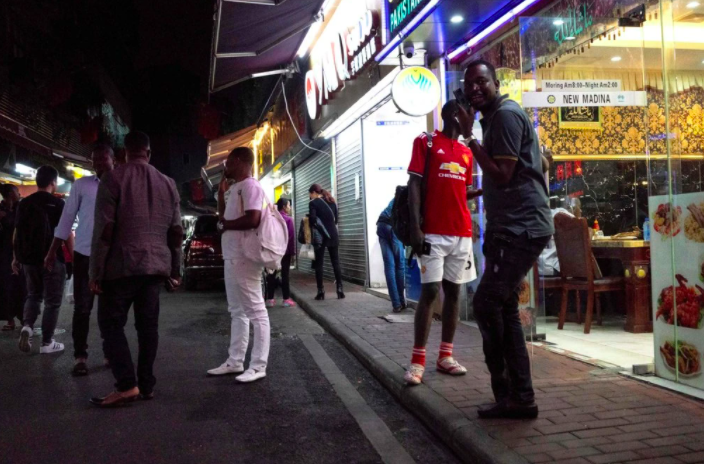
China’s attempt to highlight its goodwill efforts abroad has clashed with racist behavior reported at home. Some African residents of the southern city of Guangzhou say they have been barred from restaurants, evicted and forced into quarantine.Credit…Fred Dufour/Agence France-Presse — Getty Images
Mr. Zhao, who last month floated a conspiracy theory that the United States Army might have brought the coronavirus to Wuhan, is one of a number of Chinese diplomats who have gained prominence — and apparently influence — in Beijing by pursuing a much more aggressive strategy to defend China’s image and attack others.
This “Wolf Warrior” diplomacy — named after two jingoistic action films released in 2015 and 2017 — won an endorsement on Thursday from The Global Times, a nationalistic organ of the Communist Party. “The days when China can be put in a submissive position are long gone,” the newspaper declared, adding that Western diplomats had fallen “into disgrace.”
This newly aggressive tone — which Ms. Shirk and others attributed to Mr. Xi directives — risks alienating countries and provoking accusations like those China often makes about politicizing a public health emergency.
In Brazil, China’s embassy bitterly complained last month when President Jair Bolsonaro’s son, Eduardo, called the crisis China’s Chernobyl, after the Soviet nuclear disaster in 1986.
The European Union’s top foreign policy official, Josep Borrell, called out China in a recent statement for stoking a “battle of the narratives” that included “attempts to discredit the E.U.” and “some instances where Europeans have been stigmatized as if all were carriers of the virus.”
After the Netherlands, Spain and the Czech Republic complained about buying substandard medical supplies from China, the European Union made a point of thanking Taiwan for its donation of masks, a gesture that would previously have been considered too risky for fear of offending Beijing.
“East Asia, South Asia, Europe, Africa — there are so many places where what they are doing is having a damaging effect,” Andrew Small, a senior research fellow with the German Marshall Fund, said in a telephone interview.
Even some countries that had been friendly toward Mr. Xi’s China have recently lashed out.
Italy’s nationalist politician, Matteo Salvini, said late last month that if China deliberately covered up the initial spread of the coronavirus it would amount to a crime against humanity. “Those who have infected the world cannot be made saviors,” he said in remarks in Parliament that he posted on Twitter.

